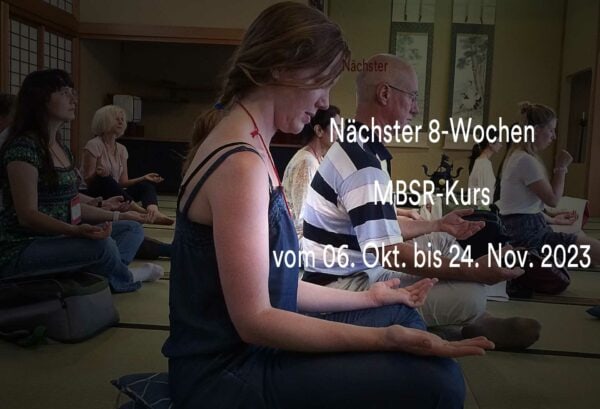Insomnia and its consequences
We spend a third of our lives sleeping. You might think it’s wasted time since we’re not really active while we sleep. Or is sleeping a kind of life in another dimension? There are various theories about this. It is clear that without sleep we could not live the other two-thirds of our lifetime. In a quest to break a world record, 17-year-old Randy Gardner revealed how his mind and body react during 11 days of total insomnia. From this experiment, we can deduce which deficits cause permanent sleep disorders and, conversely, how good sleep recharges our batteries and develops wellbeing and stress resistance. But it takes a lot more than just a good mattress.
Eleven days without sleep!
All mammals can and must sleep. However, the gap in their sleep quota is very wide. For example, giant sloths sleep an average of 20 hours a day, while cats sleep 14 hours a day. The roe deer and the horses, on the other hand, suffice for 2 hours of sleep a day. How many hours of sleep do people actually need? The usual answer to this question is 7 to 8 hours. But what happens if people don’t sleep at all? 17-year-old American Randy Gardner wanted to break the then (1967) world record of 260 hours of total insomnia. We know how he experienced the finally reached 264 hours without sleep, since he was scientifically accompanied by a researcher from the US Navy sleep laboratory at least from the 150th hour. The findings from this experiment are sobering. On the second day, Randy had trouble focusing his eyes. Mood swings, persistent nausea, difficulty coordinating movement, and speech difficulties were observed on the third day. Perceptual disturbances began on the fourth day. He was a victim of hallucinations, mistaking a street scene for a person, and constantly seeing fog around streetlights. His condition kept getting worse. Between days 9 and 11, he became more and more restless, stopping mid-sentence and saying people thought he was insane. Physical examinations showed normal blood pressure and pulse, but body temperature 1 degree C lower. His skin temperature was 10 degrees below normal. He had dry eyes, a stuffy nose and a slight sore throat with swelling of the lymph nodes. Interestingly, compared to his world record (264 hours and 12 minutes), it took Randy just a few hours to return to his usual sleep schedule. He slept 14 hours the first night and after that he only needed his usual 8 hours a night.
What sleep gives us and insomnia takes away
Due to the deficits that gradually emerged during the experiment, it can be stated that sleep is related to perception, attention, motor skills and memory, among other things. In addition to its regenerative function, it promotes memory formation, for example. For a detailed description of this process at the brain, neuron, synapse and neurotransmitter level, I refer to works of biopsychology and to numerous videos on the net. In simplified terms, one can say that the abundance of information and (physical and mental) experiences that we have experienced during the day are actively processed by the brain during the night. The result of this type of “house-keeping database” is that the information that is particularly important to us is consolidated in the memory system and is therefore available to us in the long term. However, such processes are ineffective in people who spend sleepless nights.

Preventing stress – recipes for a good night’s sleep
We know that difficulty falling asleep and restless sleep interrupted by periods of wakefulness (so-called insomnia) have a negative impact on our condition and mood. People who suffer from acute and permanent lack of sleep are not only impaired in their physical and mental abilities, but are often in a bad mood.  A permanently bad condition forms the breeding ground for permanent stress, for physical and mental exhaustion up to and including depression. However, the causes of insomnia can vary greatly depending on the person and history. Those affected should clarify these causes and, if necessary, seek professional advice on solutions. Nevertheless, it is advisable for every person, with or without insomnia, to ensure a good night’s sleep as a precautionary measure in the interests of good sleep hygiene. Without claiming to be complete, the following 10 recommendations are important:
A permanently bad condition forms the breeding ground for permanent stress, for physical and mental exhaustion up to and including depression. However, the causes of insomnia can vary greatly depending on the person and history. Those affected should clarify these causes and, if necessary, seek professional advice on solutions. Nevertheless, it is advisable for every person, with or without insomnia, to ensure a good night’s sleep as a precautionary measure in the interests of good sleep hygiene. Without claiming to be complete, the following 10 recommendations are important:
- Make the evening as relaxing as possible
- Keep alcohol, nicotine, and caffeine consumption to a minimum
- Eat a light, digestible meal at least three hours before bed
- Avoid emotionally distressing movies and other disturbing late-night events
- Go to bed sufficiently early and regularly at the same time
- Ensure a pleasant atmosphere in the bedroom (e.g. dark and cool room)
- Do not use electronic devices such as cell phones and tablets immediately before going to bed or in bed (blue light makes it difficult to fall asleep)
- Get up when you wake up and don’t stay in bed unnecessarily
- Use relaxation and breathing exercises such as meditation, progressive muscle relaxation or autogenic training on a regular basis
- Consult a doctor or sleep specialist if your insomnia persists for several weeks
Autor: Noureddine Yous, 01.05.2023




